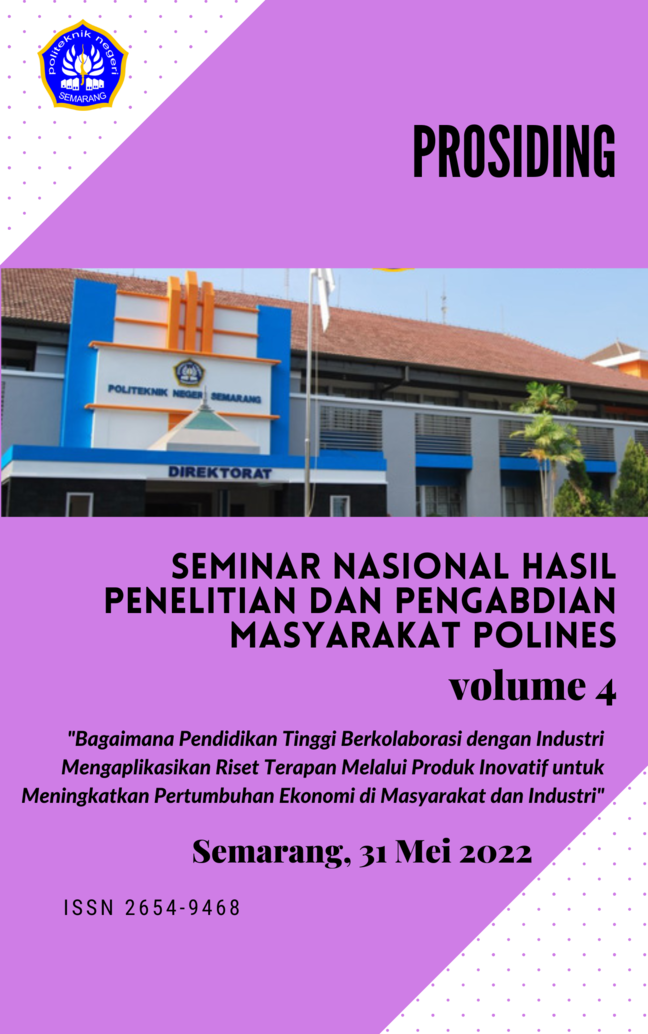MODEL PEMBELAJARAN ONLINE DI MASA PANDEMI COVID 19: SEBUAH PERSPEKTIF TECHNOLOGY ACCEPTANCE MODEL (TAM) THEORY
Keywords:
Perceived Easy of Use, Perceived Usefulness, Perceived Enjoyment, Social Interactions, Usage Attitude, Intention to Us, Technology Acceptance Model (TAM) TheoryAbstract
The Covid-19 outbreak has forced many schools and colleges to close temporarily. Various schools, colleges and universities have stopped face-to-face teaching. This research is rooted in the "Technology Acceptance Model (TAM)" concept to be a model solution for online education during the COVID-19 pandemic. This study also examines the inconclusive results of the relationship between Technology Acceptance Model and Intention to Use, both in the area of business studies and online learning studies. This research is to find the urgency of finding solutions to the research problems and research gaps of this research. The population of this study were students at universities in the city of Semarang. This study uses the number of research samples is 179 samples. The data analysis technique of this research uses Structural Equation Modeling (SEM). The output of the model in this study can make a positive contribution to higher education institutions in an effort to realize Intention to Use in the online learning model.
References
Akbari, M., Moradi, A., SeyyedAmiri, N., Zúñiga, M. Ã., Rahmani, Z., & Padash, H. (2020). Consumers”™ intentions to use ridesharing services in Iran. Research in Transportation Business & Management. doi:10.1016/j.rtbm.2020.100616
Akbari, M., Rezvani, A., Shahriari, E., Zúñiga, M. Ã., & Pouladian, H. (2020). Acceptance of 5 G technology: Mediation role of Trust and Concentration. Journal of Engineering and Technology Management, 57. doi:10.1016/j.jengtecman.2020.101585
Baudier, P., Kondrateva, G., Ammi, C., Chang, V., & Schiavone, F. (2021). Patients' perceptions of teleconsultation during COVID-19: A cross-national study. Technol Forecast Soc Change, 163, 120510. doi:10.1016/j.techfore.2020.120510
Canziani, B., & MacSween, S. (2021). Consumer acceptance of voice-activated smart home devices for product information seeking and online ordering. Computers in Human Behavior, 119. doi:10.1016/j.chb.2021.106714
Do, H. N., Shih, W., & Ha, Q. A. (2020). Effects of mobile augmented reality apps on impulse buying behavior: An investigation in the tourism field. Heliyon, 6(8), e04667. doi:10.1016/j.heliyon.2020.e04667
Estriegana, R., Medina-Merodio, J.-A., & Barchino, R. (2019). Student acceptance of virtual laboratory and practical work: An extension of the technology acceptance model. Computers & Education, 135, 1-14. doi:10.1016/j.compedu.2019.02.010
Herrenkind, B., Brendel, A. B., Nastjuk, I., Greve, M., & Kolbe, L. M. (2019). Investigating end-user acceptance of autonomous electric buses to accelerate diffusion. Transportation Research Part D: Transport and Environment, 74, 255-276. doi:10.1016/j.trd.2019.08.003
Holdack, E., Lurie-Stoyanov, K., & Fromme, H. F. (2020). The role of perceived enjoyment and perceived informativeness in assessing the acceptance of AR wearables. Journal of Retailing and Consumer Services. doi:10.1016/j.jretconser.2020.102259
Iranmanesh, M., Hyun, S. S., & Foroughi, B. (2019). Understanding the determinants of mobile banking continuance usage intention. Journal of Enterprise Information Management, 32(6), 1015-1033. doi:10.1108/JEIM-10-2018-0237
Jayul, A., & Irwanto, E. (2020). Model Pembelajaran Daring Sebagai Alternatif Proses Kegiatan Belajar Pendidikan Jasmani di Tengah Pandemi Covid-19. Jurnal Pendidikan Kesehatan Rekreasi, 6(2), 190”“199-190”“199.
Lee, J., Kim, J., & Choi, J. Y. (2019). The adoption of virtual reality devices: The technology acceptance model integrating enjoyment, social interaction, and strength of the social ties. Telematics and Informatics, 39, 37-48. doi:10.1016/j.tele.2018.12.006
Ozturk, A. B. (2016). Customer acceptance of cashless payment systems in the hospitality industry. International Journal of Contemporary Hospitality Management, 28(4), 801-817. doi:http://dx.doi.org/10.1108/IJCHM-02-2015-0073
Sekaran, U., & Bougie, R. (2016). Research methods for business : a skill-building approach. John Wiley & Sons Ltd., Seventh Edition.
Sukendro, S., Habibi, A., Khaeruddin, K., Indrayana, B., Syahruddin, S., Makadada, F. A., & Hakim, H. (2020). Using an extended Technology Acceptance Model to understand students' use of e-learning during Covid-19: Indonesian sport science education context. Heliyon, 6(11), e05410. doi:10.1016/j.heliyon.2020.e05410
Yang, K.-C., & Shih, P.-H. (2020). Cognitive age in technology acceptance: At what age are people ready to adopt and continuously use fashionable products? Telematics and Informatics, 51. doi:10.1016/j.tele.2020.101400
Zarafshani, K., Solaymani, A., D”™Itri, M., Helms, M. M., & Sanjabi, S. (2020). Evaluating technology acceptance in agricultural education in Iran: A study of vocational agriculture teachers. Social Sciences & Humanities Open, 2(1). doi:10.1016/j.ssaho.2020.100041






